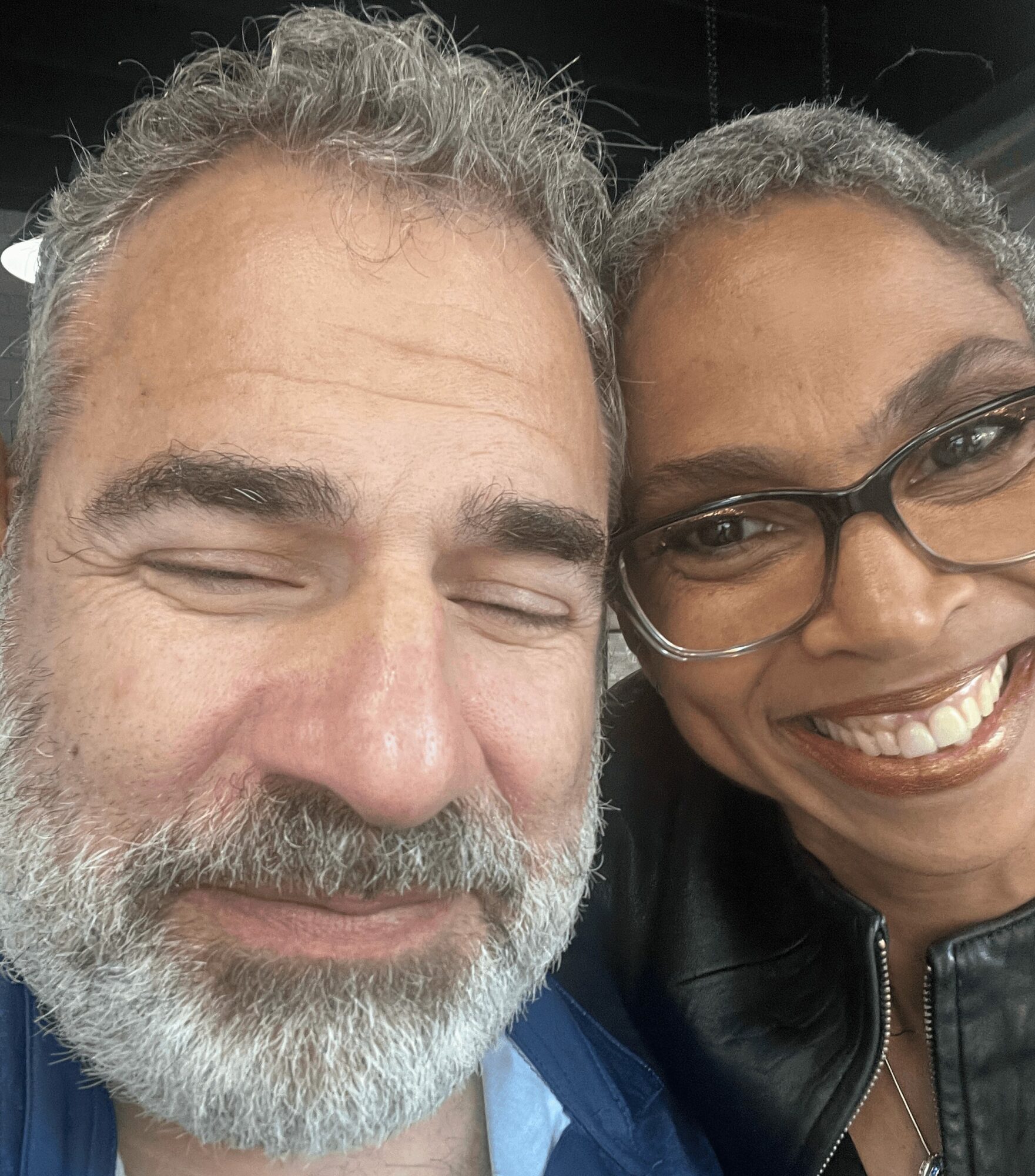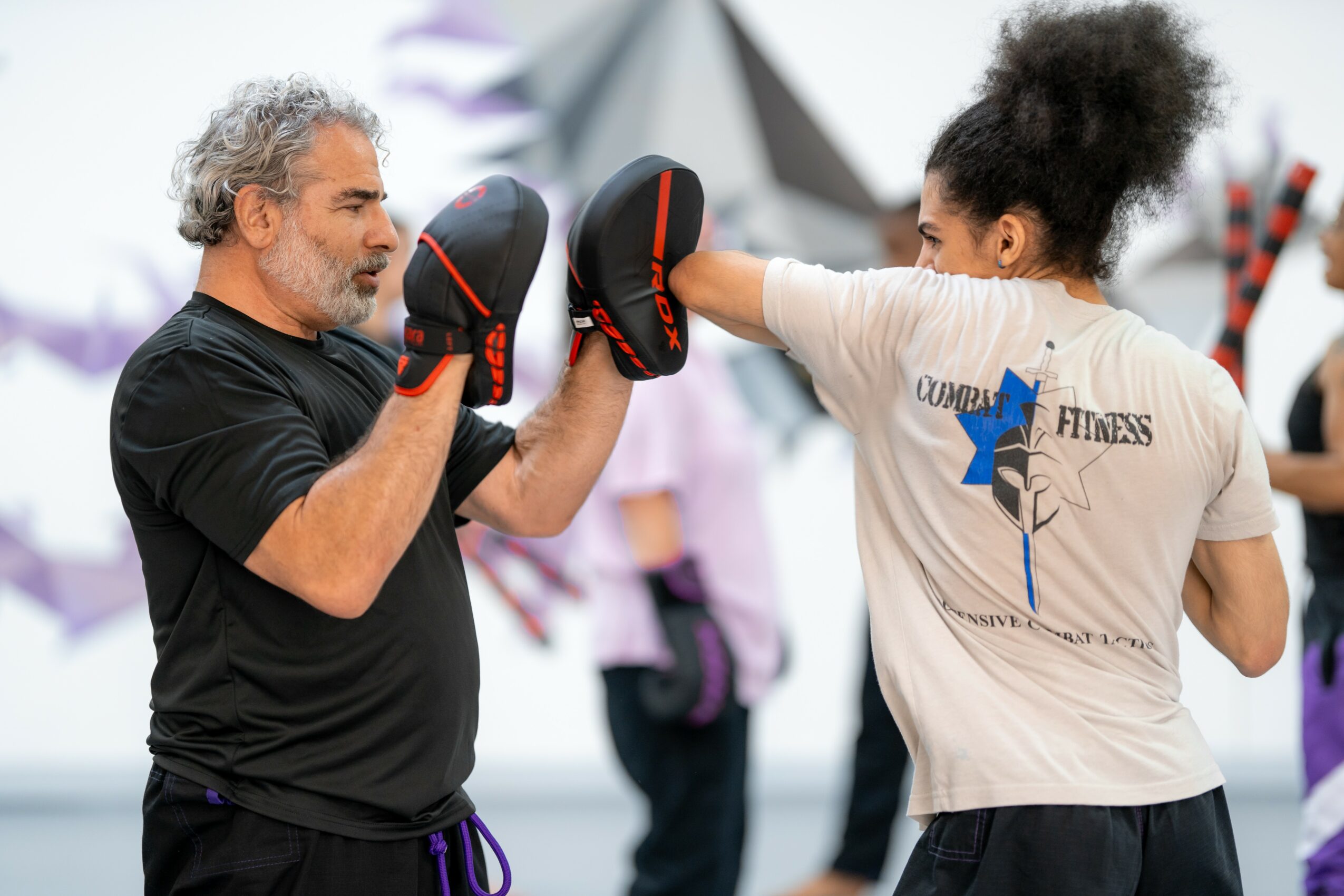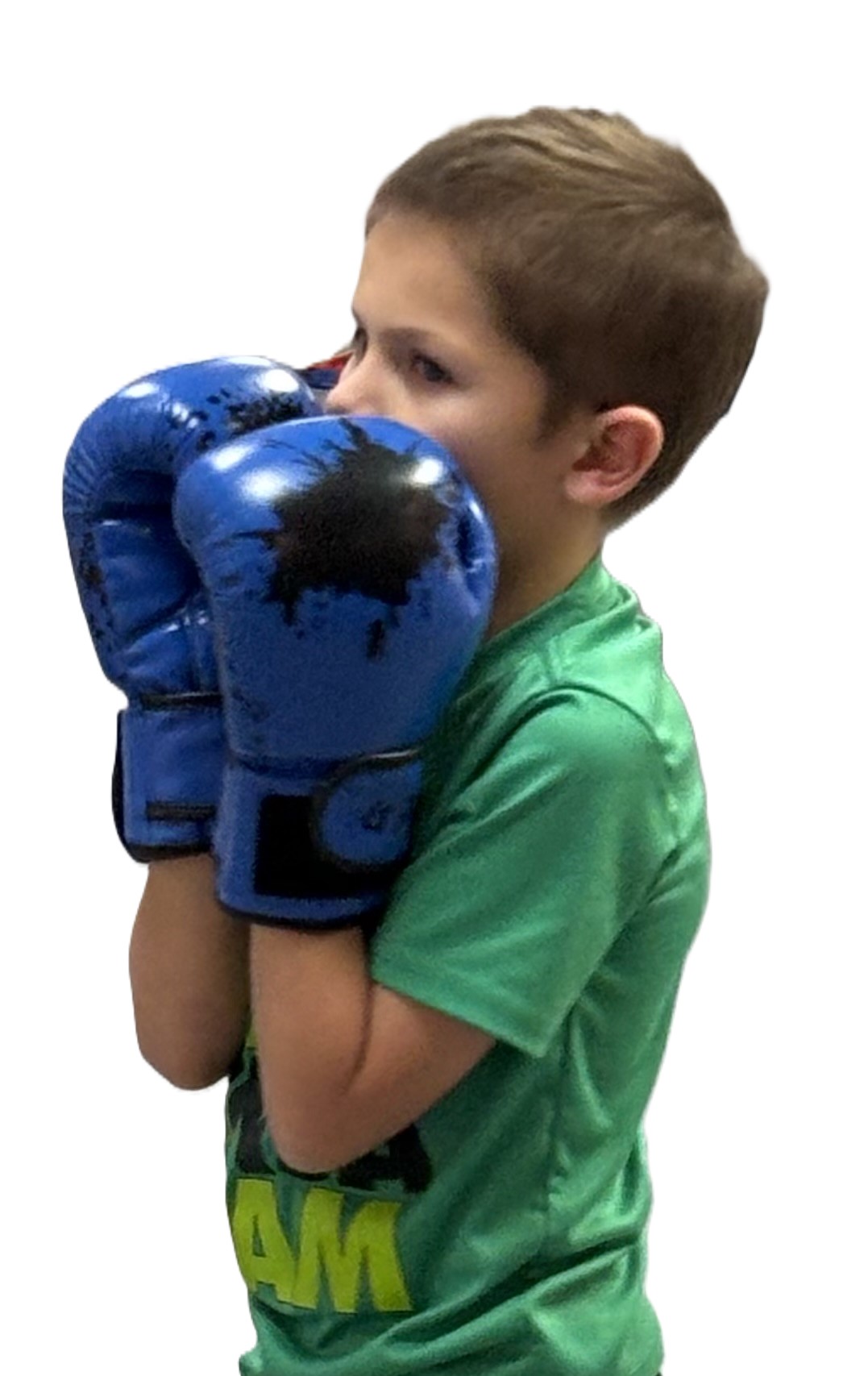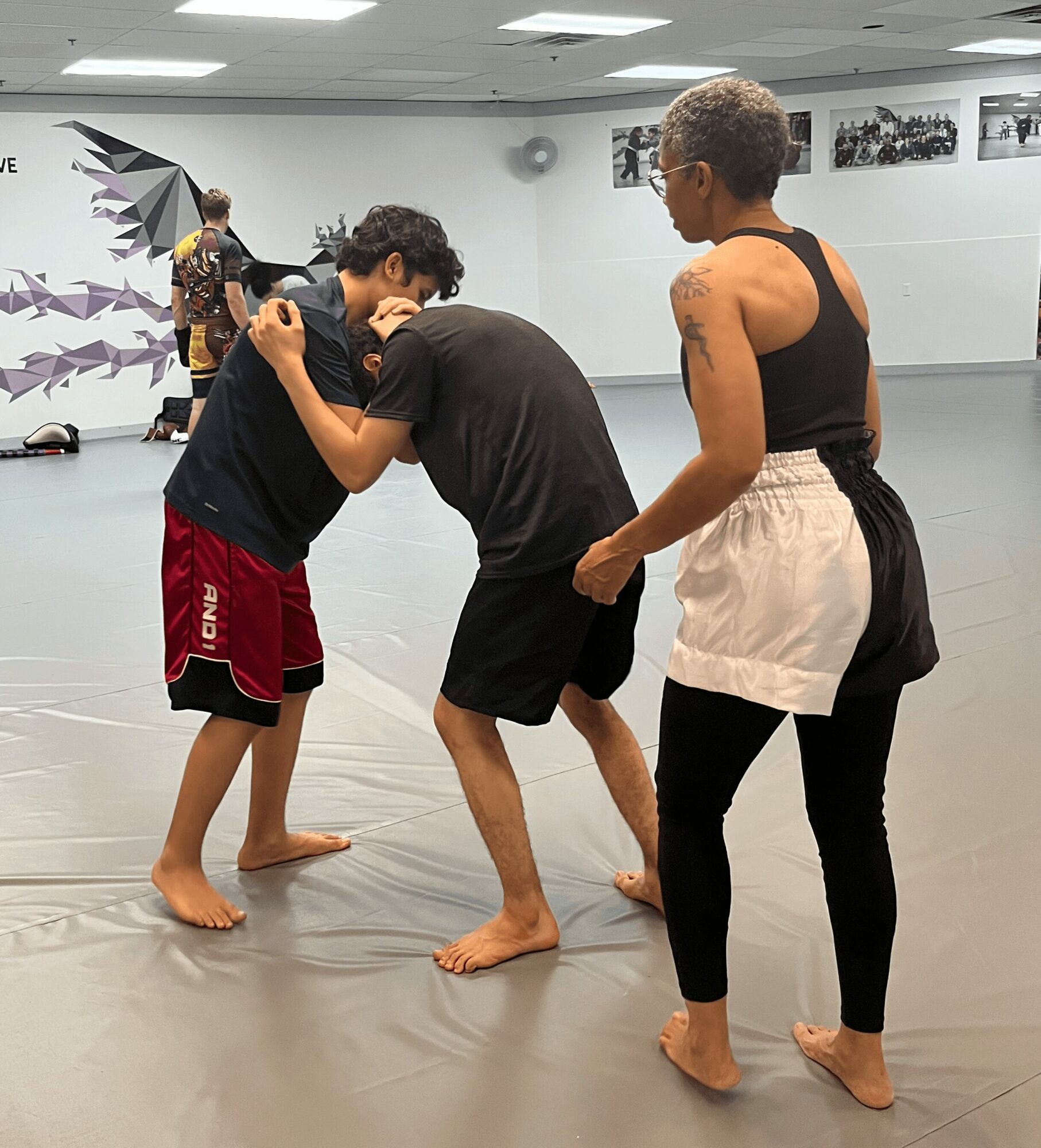

Today we’d like to introduce you to Mary Beth Haile.
Hi Mary Beth, it’s an honor to have you on the platform. Thanks for taking the time to share your story with us – to start maybe you can share some of your backstory with our readers?
We both came to Muay Thai through very personal paths. Eric was a police officer and defensive tactics instructor, and over the years he trained people from their very first day in Muay Thai all the way to professional fighters. I trained alongside him, and I also brought my own lived experience with self-defense into the mix.
Outside the gym, we’ve also worked in healthcare and are Certified Peer Support Specialists, so we know how trauma shows up in both the body and daily life. As parents of neurodivergent children, we saw firsthand how much of a difference access to physical training makes for mental wellness. As The Body Keeps the Score points out, movement and conditioning are game changers for the brain and body. But we also noticed that the people who could benefit most — trauma survivors, neurodivergent individuals, people who feel shut out of traditional gyms — are often the ones who face the highest barriers to entry.
That insight led us to develop our Trauma Informed methodology of training Nak Muays (Muay Thai practitioners). At our gym, everyone trains together: survivors of trauma, neurodivergent students, people who want to train like fighters, and people who simply want to reclaim a healthy relationship with their bodies. We also created a self-defense program rooted in defensive tactics, but with a focus on surviving an encounter rather than engaging an attacker — something practical, accessible, and effective for everyday people.
That’s really how we got here: combining Eric’s professional background, my lived and professional experience, and our shared belief that Muay Thai and fitness should be accessible, healing, and empowering for every body.
Would you say it’s been a smooth road, and if not what are some of the biggest challenges you’ve faced along the way?
It definitely hasn’t been smooth. We’ve been bootstrapping this from the beginning, which means we wear a lot of hats and do much of the work ourselves. At the same time, we’re committed to developing a curriculum that honors our Muay Thai lineage while also staying true to our trauma-informed approach. That balance takes time, patience, and constant refinement.
Our focus on vulnerable populations — trauma survivors, neurodivergent individuals, and people who often feel excluded in traditional gyms — also brings unique challenges. It requires building trust, reshaping how training is delivered, and sometimes going against the grain of how martial arts has “always been taught.” The work can be heavy, but our backgrounds in healthcare and as Certified Peer Support Specialists give us tools to navigate those needs with care and intention.
We’ve relied heavily on our family, including our sons, to help coach and support the program. It hasn’t always been easy, but the struggles are what keep us grounded in our mission: to make Muay Thai and self-defense accessible, healing, and empowering for every body.
Thanks for sharing that. So, maybe next you can tell us a bit more about your business?
Empower Muay Thai is a martial arts gym with a very specific mission: to make Muay Thai and self-defense training accessible, trauma-informed, and empowering for every body. We specialize in training people across the spectrum — from complete beginners to aspiring fighters — but we are best known for creating a safe and supportive space for populations that are often left out of traditional gyms, including trauma survivors, neurodivergent individuals, and people who may not see themselves reflected in the martial arts world.
What sets us apart is our Trauma Informed methodology. Instead of assuming a “one-size-fits-all” approach, we adapt training so that students can build strength, skills, and confidence without being retraumatized or shut out. We combine Eric’s experience as a police officer and defensive tactics instructor with my background in healthcare and as a Certified Peer Support Specialist. Together, we’ve developed a curriculum that honors the legacy of Muay Thai while also respecting the lived experiences and needs of our students.
Brand-wise, we’re most proud that we’ve built a gym where people feel safe to push themselves, try new things, and reclaim their bodies on their own terms. For some, that means training like a fighter; for others, it means moving their body in a way that builds resilience and confidence. Beyond Muay Thai classes, we also offer a self-defense program focused on surviving real-world encounters — practical, effective skills for everyday people.
At its heart, Empower Muay Thai is about belonging and strength. We want readers to know that martial arts aren’t reserved for a select few — they can be for everyone. Our gym is proof that with the right approach, Muay Thai can be healing, empowering, and transformative.
Do you have recommendations for books, apps, blogs, etc?
One of the most influential resources for us has been The Body Keeps the Score by Bessel van der Kolk, which really sparked our commitment to trauma-informed training. We also draw a lot from the work of Peter Levine on somatic healing, and John Ratey’s Spark, which highlights the powerful connection between exercise and mental health. As parents and coaches, we’ve leaned on developmental psychology resources like Daniel Siegel’s The Whole-Brain Child to better understand how movement and learning connect for kids.
Beyond books, organizations like NAMI (National Alliance on Mental Illness) and SAMHSA provide valuable insight and evidence-based practices around mental health and recovery, which we adapt into our approach. We also stay up to date with research from the CDC and NIH on nutrition, exercise, and wellness. For ongoing learning, we tune into podcasts like Huberman Lab, which breaks down neuroscience and recovery in accessible ways, and The Trauma Therapist Podcast, which keeps us grounded in the practical side of trauma-informed care.
Altogether, these resources keep us connected to both the science and the lived experience behind what we do, helping us bring the best possible practices into our gym community.
Pricing:
- Adult Memberships & Family Plans Month-to-month memberships: $160/month. Discounted rates available for 3- and 6-month commitments. We also offer a steep family plan discount so households can train together. Veterans, active duty military, first responders, and Perks at Work members receive additional savings.
- Youth Memberships: Kids’ classes at $120/month
- Open Gym: Open gym access available for $50/month, or day passes for $20.
- Self-Defense Workshops: Specialized self-defense sessions are offered periodically or can be scheduled for groups, priced at $200 per workshop.
- Holiday & Summer Camps: School break camps (ages 4–11) run from 11am–3pm and are priced at $200 per week or $50 per day.
Contact Info:
- Website: https://empowermuaythai.org
- Facebook: https://www.facebook.com/profile.php?id=61559205873510
- LinkedIn: https://www.linkedin.com/company/empower-muaythai-llc
- Youtube: https://www.youtube.com/watch?v=P5ySvJMd37g
- Yelp: https://www.yelp.com/biz/empower-muay-thai-smyrna?uid=rK_7amn2RayoKXhlv0K-Eg&utm_campaign=www_business_share_popup&utm_medium=copy_link&utm_source=(direct)



Image Credits
Tatum Spearman













